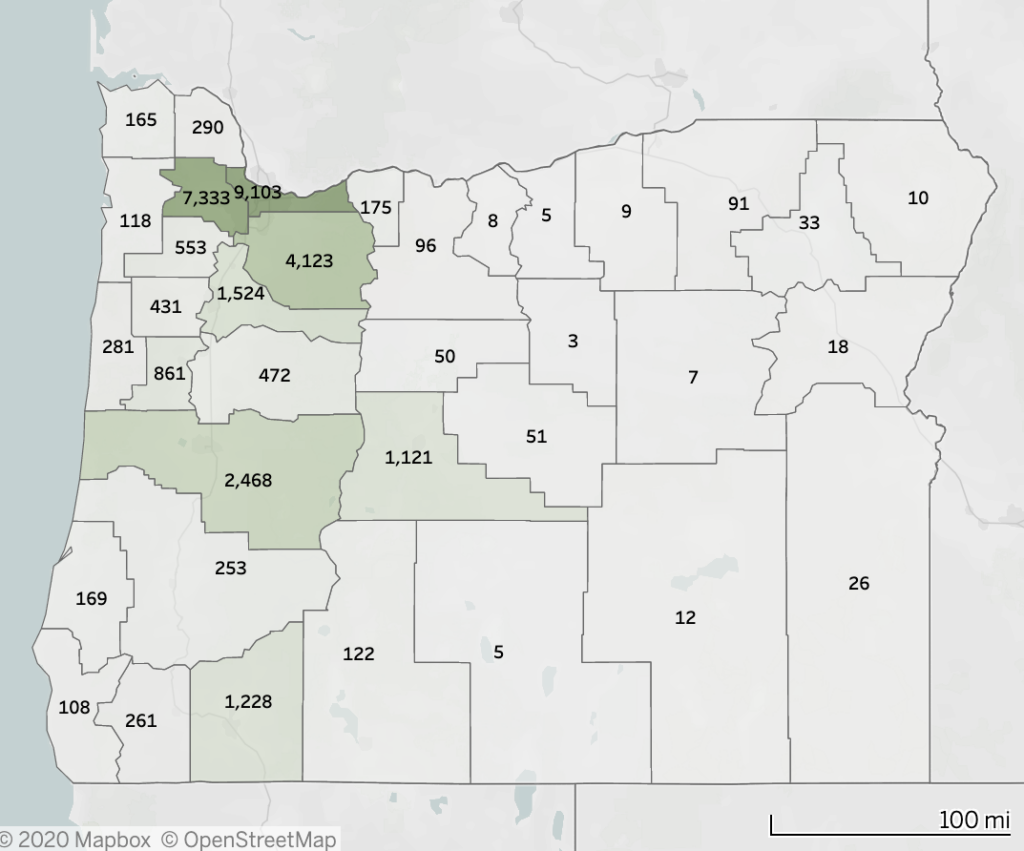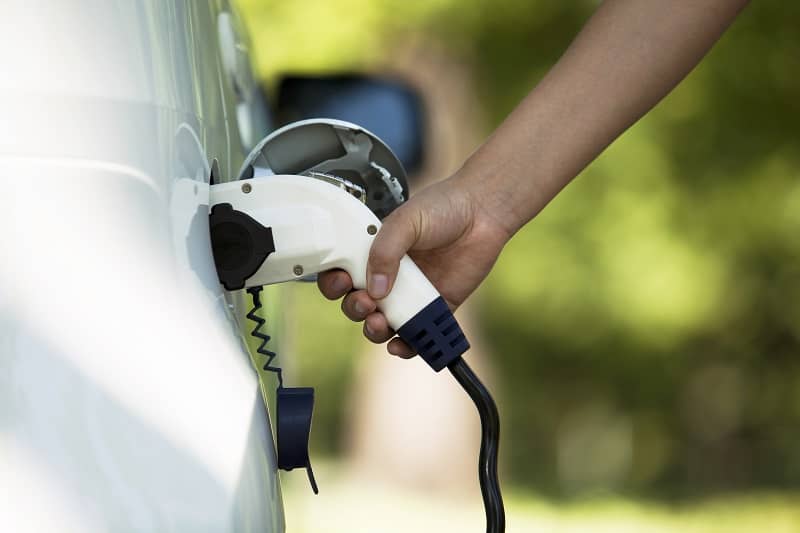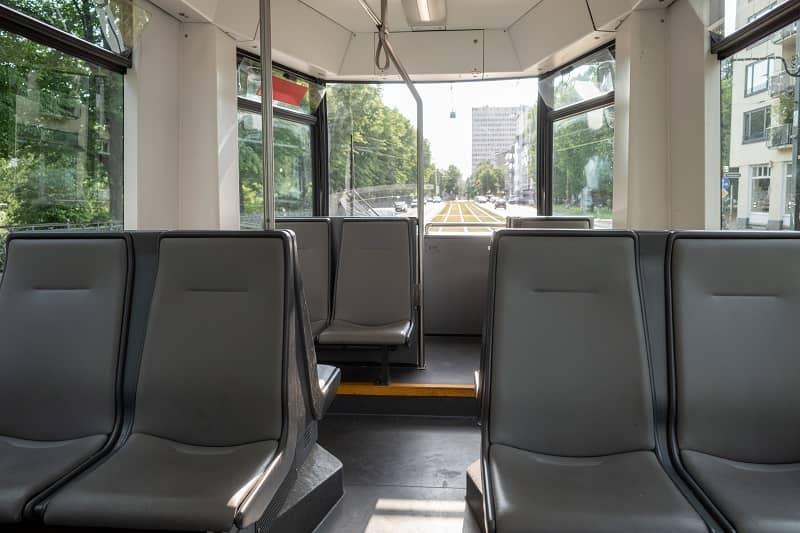By Rachel Dawson
Where are all the electric cars in Oregon? If you live in Portland, they’re hard to miss. But leave the metro area, and EVs are a rare sight. To get an idea, check out the Oregon Department of Energy’s new interactive EV dashboard. The dashboard tracks EV purchases by county and model.
The dashboard clearly shows that Oregon’s wealthy and urban counties are benefiting most from subsidies for a costly technology that remains out of reach for many Oregonians. Rather than letting the market operate freely, Oregon officials and utilities alike are attempting to push more consumers towards purchasing EVs by offering taxpayer funded rebates.
Total Number of Electric Vehicles by County

Where are those subsidies going? Nationally, around 60% of EV buyers have six-figure incomes. About half are aged 25 to 55, and 75% are male.
At the state level, the Oregon Department of Environmental Quality (DEQ) offers a “Clean Vehicle Rebate” program and a “Charge Ahead Rebate” program that provides up to $2,500 for the purchase or lease of a new qualifying EV with an additional $2,500 for Oregonians with low or moderate incomes for either a new or used EV. However, low-income Oregonians can only receive both rebates if they purchase a brand new EV. DEQ receives $12 million annually to fund these programs from a vehicle privilege tax imposed on car dealers throughout the state. In other words, someone purchasing a traditional gas power car is helping pay for someone else’s EV purchase.
On top of that, the federal government offers a tax credit for all new EVs and hybrids up to $7,500, depending on the model. Additionally, many Oregon utilities offer monetary incentives for EVs and charging infrastructure. For example, the Emerald People’s Utility District (PUD) offers a $100 incentive for customers registering new or used EVs, while the Central Lincoln PUD offers customers a $250 rebate for purchasing a level 2 EV charger.
Of the 31,977 EVs in Oregon, around 64% (or 20,559 vehicles) are located in the Portland area. One could argue that more EVs are in the Portland metro area due to its larger population size. However, data from ODOE’s own dashboard shows that EV adoption grows as a county’s wealth increases even when accounting for population size.

Further, the most commonly purchased EV is a Tesla, which accounts for around 27% of all EVs registered in Oregon. The vast majority of these, around 70%, are registered in the Portland area. You certainly won’t see a Tesla driving around Harney, Morrow, or Wheeler counties in Eastern Oregon.
This is likely because in addition to being costly, current EV technology faces difficulties with range and cold temperatures. The vehicles use lithium-ion batteries which are sensitive to temperature changes. Cold temperatures can cut their range by up to one-third. These issues make EVs a suitable option for warm, urban areas—a big reason why the largest markets for EVs in the US can be found in California, Texas, and Florida. However, EVs may experience difficulties during Eastern Oregon’s cold winters.
David Larson, Jaguar Land Rover’s general manager of product development, told ABC news that EVs “still cost a lot more than ICE [internal combustion engine] cars and charging takes a long time…. For a rancher in Montana, EVs are not the solution. These cars are for people who live in urban areas and don’t travel more than 100 miles or more a week.”
As car companies continue to innovate, the cost of EVs will likely continue to fall while EV registrations increase without additional government pressure. People should be free to make the decision to purchase an EV using their own hard-earned money. However, the state should not be using tax dollars, especially from rural and low-income Oregonians, to subsidize their cost.
The privilege tax does not bring the state together. Rather, it illuminates the existing rural and urban divide. If Governor Brown were truly committed to equity, she would repeal this divisive privilege tax.
Rachel Dawson is a Policy Analyst at the Portland-based Cascade Policy Institute, Oregon’s free market public policy research organization. She can be reached at rachel@cascadepolicy.org












